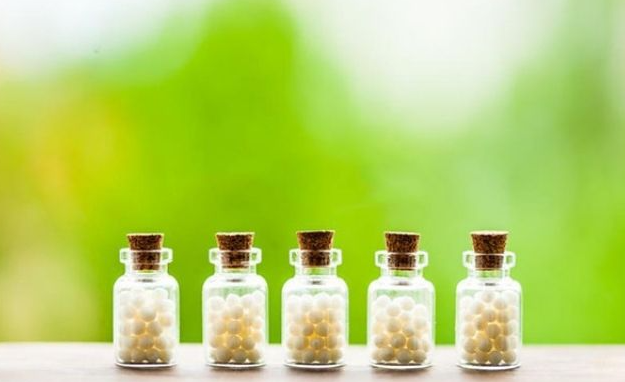Do Homeopathic Remedies Work?

Homeopathy was invented by Samuel Hahnemann around 1784 and was first published in 1807. During homeopathy's invention, medicine was not well understood and frequently did more harm than good. Remember, infection control wasn't a real thing until the 20th century. Even penicillin didn't see widespread medical use until the late 1800s. Samuel Hahnemann sought to discover a method of treatment that prevented diseases without the nasty side effects common to medicine at the time.
During his medical research, Hahnemann found certain chemicals that would cause symptoms similar to those caused by particular diseases. Struck with inspiration, he decided that if someone ingested an ingredient that caused nausea (for example) whenever they were already nauseous, it should cure the sickness.
He coined this concept the "law of similars." As far as medical theories at the time, it wasn't the wildest thing out there. He wasn't incorrect when he said that certain diseases caused specific symptoms. This much is accurate. Some conditions have symptoms that are duplicated as side effects by the treatments. Looking at it in context, Hahnemann didn't have a terrible idea. Yet.
Samuel Hahnemann's ideas went off the rails whenever he combined his inaccurate theory of "like-cures-like" with a new idea he came up with. For some reason, the idea came to Sam to give a dilution of the original active ingredient instead of the total strength ingredient because he believed it would have a significant effect after being diluted. How he came across this particular idea, I have no idea.

Years pass.
His idea catches on. Going into CVS, you'll see an entire aisle devoted to homeopathic treatments. In modern homeopathy, water or alcohol is used as the solvent. This led to some interesting situations, like when a skeptic got drunk from homeopathic treatments. Did I mention that some homeopathic dilutions are done with alcohol instead of water?
Ok, back to the modern-day. Imagine that you got lost and are in the homeopathic aisle. If you see a 30X dilution (like this one), it has been diluted by 99%, had one unit of product removed, and then that unit diluted by 99%, and so on for a total of precisely 1000000000000000000000000000000 times. From a practical standpoint, one molecule of the active ingredient would be present for every 1*10^60 molecules. You'd need 30 billion times the mass of the earth to find one molecule of the original active ingredient. As an interesting bit of trivia, a 200X dilution would require a mass greater than the total mass of the universe to find one molecule of the original substance. You're buying water (or in some cases, alcohol). Well, you're buying a drop of water dripped onto a sugar tablet.
How did this idea get any traction? Somehow Sammy thought that by shaking each dilution while wearing a leather glove, the spirit of the active ingredient was infused into the substance through the memory of water. It's worth pointing out that water does not have memory. Also, ingredients do not have spirits regardless of the use of leather.
For any homeopathic remedy to work, it would violate everything we know about chemistry, physics, and biology.
Let's look at randomized, clinically-performed, double-blind, placebo-controlled experiments.
Medline searches for "homeopathy" find a few thousand results. Most hits are within homeopathic and alternative medicine journals. Most of these were not clinical trials but reviews, opinion pieces, and non-scientific results.
Most "studies" are of completely subjective problems such as pain management or mild illnesses that clear up on their own with no intervention required. Naturally, these dubious studies that are published in homeopathic journals tend to favor homeopathy. Outside of homeopathic-friendly journals, you will not see that. The more reputable the journal, the less likely it is to have anything positive to say about homeopathy.
Pretty much every meta-analysis ever conducted (Cochran, Lancet, British Medical Journal, Annals of Internal Medicine, et al.) has found no medical efficacy beyond what a placebo provides.
There was an interesting article published a few years ago in the Lancet titled "Are the Clinical Effects of Homeopathy A Placebo Effect?" which looked at 110 different medical studies on homeopathic treatments and found that as the study was more extensive and better controlled, the clinically determined efficacy of homeopathic remedies regressed towards the same efficacy as placebo.
So there you have it. People pay a lot of money for sugar tablets based on bad science.





Member discussion